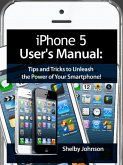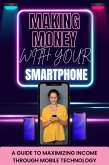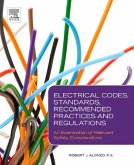Through extensive research and insider interviews, the book exposes how companies like Apple justified proprietary connectors like the Lightning port through claims of superior engineering and user experience, while critics argued these were thinly veiled attempts to lock consumers into expensive proprietary ecosystems. Readers will discover the forgotten history of early data connectors and the fascinating story of why initial standardization efforts failed across the technology industry. The emergence of the Universal Serial Bus (USB) standard marked a turning point, yet its evolution spanning decades reveals deeper insights into the challenges of creating truly universal connectivity solutions.
The narrative explores crucial engineering trade-offs between proprietary and universal connectors, while examining the substantial environmental impact of peripheral incompatibility in our digital age. Special attention is given to the European Union's groundbreaking USB-C mandate and analysis of why the United States has yet to implement similar regulations. The book unveils the lucrative business of proprietary cable licensing, where tech giants generate billions in revenue through connector patents and certification programs.
Looking toward the future, "Tangled" paints a picture of what a truly universal connector ecosystem could look like, contrasted with our current reality of fragmented standards. The hidden costs of connector incompatibility are laid bare, from consumer frustration to environmental waste. Even as wireless charging technology advances, the book explains why cable connections remain crucial and how the wireless revolution hasn't eliminated our dependence on physical connectors.
This compelling investigation demonstrates that while some technical limitations historically justified multiple standards, today's fragmented connector landscape is largely a result of business strategy rather than engineering necessity. The book concludes by examining how standardization could drive innovation rather than stifle it, while making technology more accessible and sustainable for everyone.
"Tangled" speaks to a diverse audience of technology enthusiasts, business strategy readers, and consumer rights advocates. It provides valuable insights for environmental sustainability professionals and policy makers working on tech regulation. Above all, it resonates with anyone who has ever felt frustrated by carrying multiple chargers or purchasing expensive proprietary cables for their devices. This comprehensive exploration of the charging cable industry reveals how something as mundane as a connector became a critical battleground in the fight for technological control and market dominance.
Dieser Download kann aus rechtlichen Gründen nur mit Rechnungsadresse in A, B, CY, CZ, D, DK, EW, E, FIN, F, GR, H, IRL, I, LT, L, LR, M, NL, PL, P, R, S, SLO, SK ausgeliefert werden.









